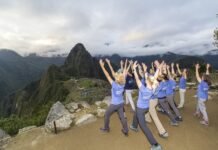Thinking of a fall road trip? After a year of planning, over 9,942 miles (16,000 Km) of driving, 58 days away from home, and 235 hours on the road, my husband and I have just returned from an EPIC road trip to the Yukon. And if possible, it was even more amazing than we imagined!
Story and photos by Rosemarie Barnes
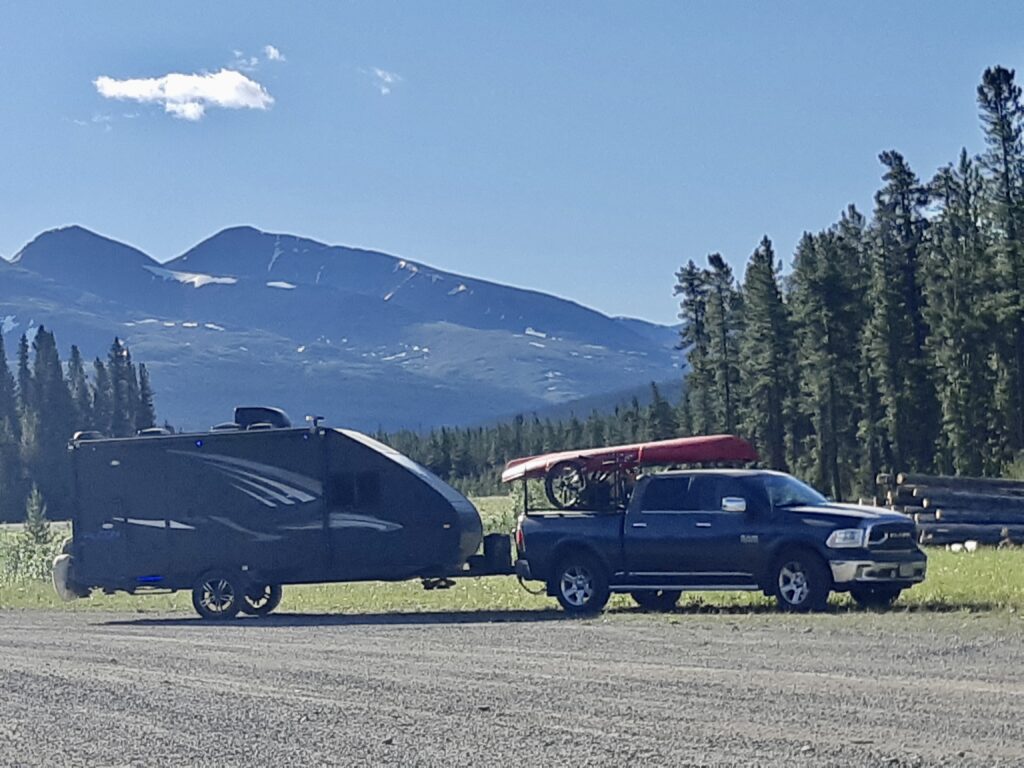
During the “stay-at-home” winter and spring months of 2020, when the world was closing its borders to travelers, we dreamt about where we would go in the summer of 2021 when all would be well again. We have traveled with our trailer for years between Canada and the U.S., and, currently even more now that our four adult kids now spread out on three coasts. We thoroughly enjoy the camping aspects, and the unforeseen adventures that only long road trips can provide. We stumbled upon the TV series “Canada on the Edge”, and were left speechless by the jaw-dropping scenery and endless beauty of the Yukon and the Dempster Highway. So…..we started to dream and plan!
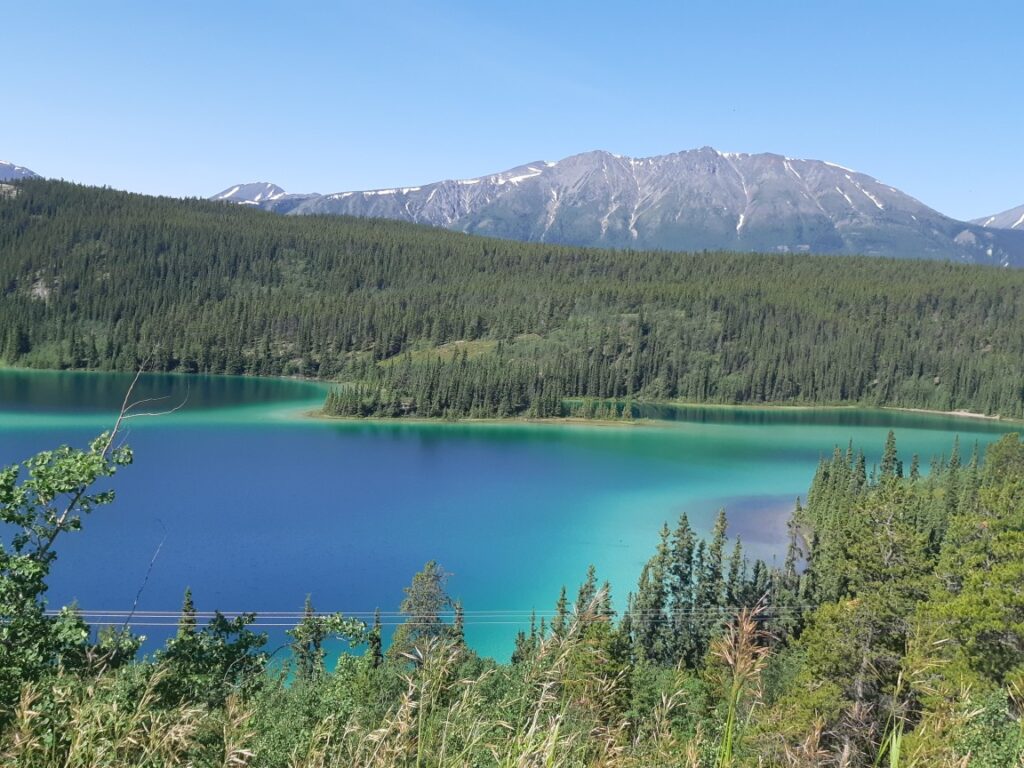
Now that I am fully retired, and my husband is semi-retired, we were able to take off two months in order to take our time and try to see and experience as much as possible. If you do not have this flexibility, it is certainly possible to alter the road trip to your own timeline.
To help you plan your own epic road trip, here’s a bit of advice and a handful of tips I’d like to share:
The first thing we did, was to contact both the Tourism Industry Association of the Yukon and NorthWest Territory Tourism. They were very helping and were happy to send us whatever information we wanted, all for free.
We began browsing through the brochures to see what we definitely had to see and do…..and those that we hoped to. Once we flagged these adventures, we then began to plan out our daily trips, when we would leave, how far we would drive each day, what campsites or RV parks we would stay at and how long we would stay at each stop. With all the new interest in exploring the great outdoors, it is becoming much more difficult to book a campsite at any Provincial Park, so I highly encourage you to book these months in advance, the earlier the better. Once we organized all our stops, we estimated it would take two weeks to get to the Yukon capital of Whitehorse, stopping 10 times along the way. This was very manageable for us and we were comfortable with just a few extra-long days.
Next, we looked into specific places in the Yukon that we wanted to visit and do: Carcross, Dawson City, Tombstone Territorial Park, drive the Dempster Highway, kayak Kathleen Lake and other road trip type adventures along the way. We investigated local events and attraction in each spot, including local festivals, concerts, hiking trails, camp sites or hotels where we wanted to stay, any tours or adventures we wanted to check out, and so on. We looked into when tickets (for events) were available, and if reservations were necessary.
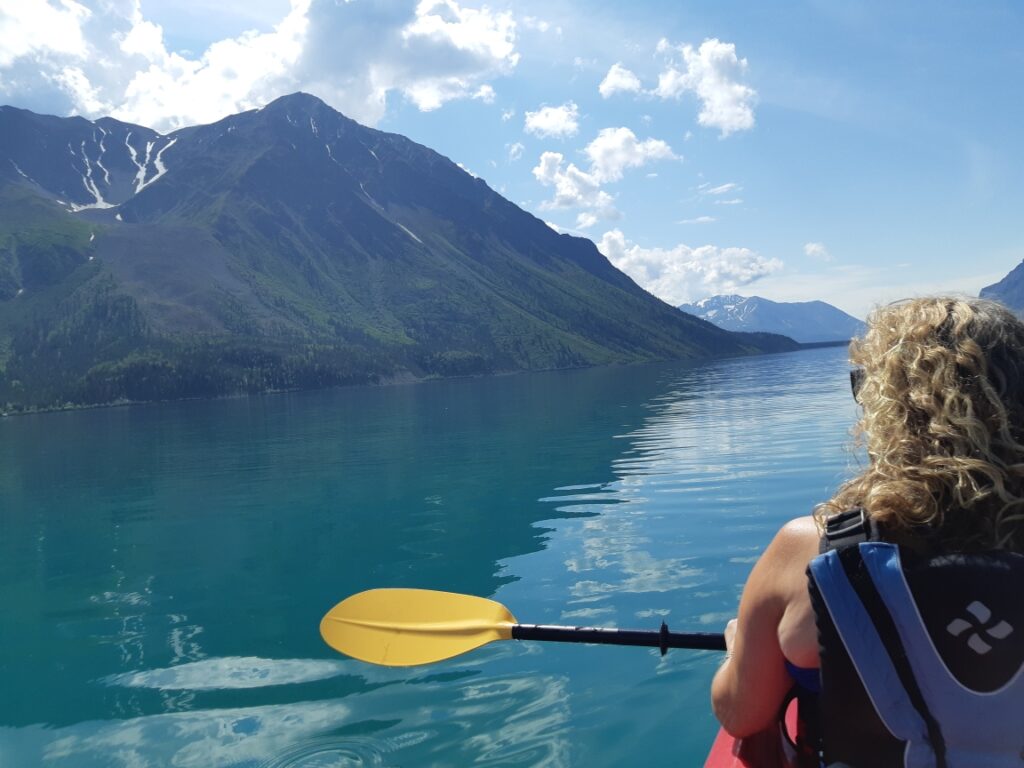
So then, we needed to decide just how long we were going for, and to begin our actual itinerary and planning for that to that bucket list journey.
And then, the LIST making began! As a mom bringing up four kids, I found it exceedingly helped to make lists in order to remind me of all those little things that needed attention in such a busy household! I became an avid List Maker. The following are just a few important items that go into preparing for and planning a long and safe road trip.
1. Make sure you get a full tune up/inspection of your vehicle. you don’t want some small oversight to ruin your trip. this goes for your trailer ( if you have one) as well. check the tires, and any hook-ups, lights, hitch etc…
2. Have ALL the tools necessary to change a tire and other unexpected auto/trailer needs. (E.G. tire inflator, jacks, wrenches, crazy glue, duct tape, spare tires, etc). You never know how far away you may be from a town when an unexpected car issue arises.
3. If you plan on going off-grid, like we did, you will need a generator, perhaps a solar panel, do your research so you have what you need.
4. Look ahead into the time frame you will be visiting your destination. Are there any alerts or dangers that you should be aware of? Bears. Hurricanes. Tornadoes. Fires. Floods. Purchase what would be needed in the event of these circumstances, and have it with you. Do not expect to pick up these specific items when you arrive….just in case they are unavailable. (E.G. bear spray, tick clothing, bug spray and clothing for expected weather conditions, hiking or other activities.)
On our trip, we were aware that along the Dempster Highway there are NO amenities, NO cell reception…and sometimes one might go days without seeing another human being. Two campsites we stayed at overnight were empty…..just us and the bears! More than a bit unnerving, but also a unique experience. We brought many “extra” items with us, in advance preparation for emergency situations. On such excursions, one should also have a well equipped 1st aid kit handy. Beyond band aids and allergy medication, we also brought pain reliever, hot/cold emergency packs, a sling, and a few tensor bands. I am proud to think it was a kit that a paramedic would have been comfortable using. Other items to have on your must-pack list include: Extra cans of both diesel and gasoline, extra batteries in sizes to accommodate the various devices you will be carrying, solar panel and generator, heavy duty bug spray and bear protection, which was needed all over the Yukon, including the trails and hiking paths even in the city of whitehorse, and especially in more remote areas – like the Carcross Desert.
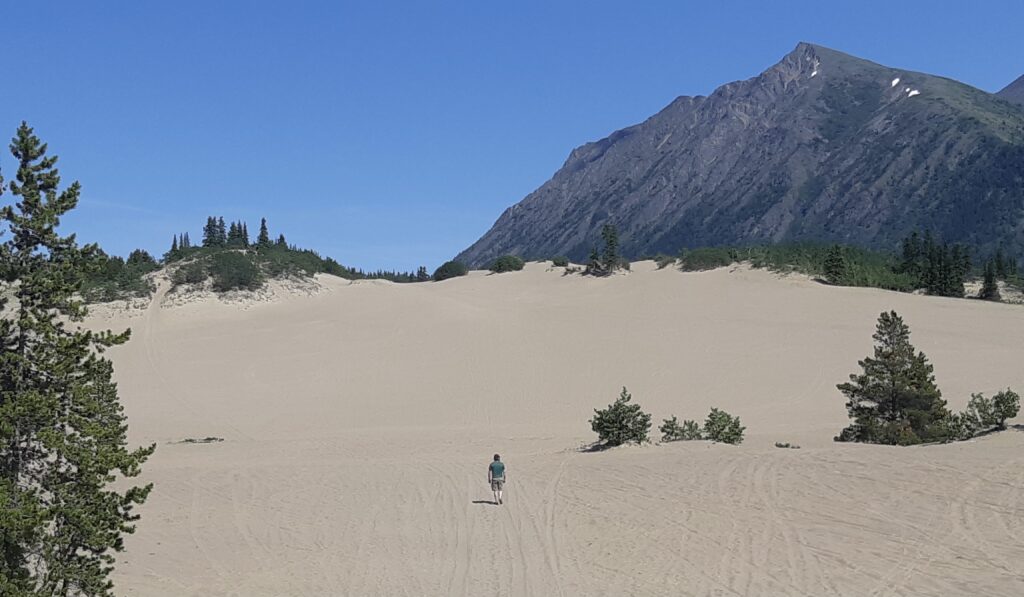
5. Have a file folder with all important and relevant paperwork including auto and travel insurance documents, roadside assistance information, RV campsite or hotel reservations, all tickets, passports, maps, we also had copies of our vaccine verification which we needed to show many times at various provincial border checkpoints. Print out a daily itinerary, and leave one with a family member or neighbor so others know where you are. JUST in case.
6. Ask a neighbor or friend to make your home looked lived-in….cut the grass, pick up the mail, shovel snow if in winter months etc…..use timers on lights to make it look like you are home.
7. We ended up purchasing a Zoleo phone in Whitehorse so we could contact our kids (or in the case of an emergency) while we drove the Dempster Highway for 10 days with no cell reception. At $250, we found this to be an excellent purchase, as it acts as a satellite transmitter, and allows you to use your cell phone to send personal messages, as long as the person you are calling has downloaded the free Zoleo APP. It worked superbly, and cost just a bit more than renting a satellite phone for the same time period, and which only allows one to send a pre-selected message e.g. “we are here safely”.
8. Usually on any trip, you might take a large number of pictures. We took around 1,200, because it seemed like every five minutes or so there was another stunning scene that just had to be captured..a herd of wild elk or buffalo crossing the road. Deer, bears, lynx, mountain sheep, coyote, moose….we saw them all. We had to stop the truck so many times to allow the “local inhabitants” time to get off the road safely. It was amazing.
It you are using a traditional camera instead of the one in your cell phone, remember to get an extra large memory card, so you are not disappointed when the perfect shot presents itself, and you are faced with a “Memory card FULL” message.
9. If you are taking any medication, ensure you have enough for the entire extent of the trip, plus a few days extra just in case of delays.
10. For those traveling with kids, one of my “Go – To’s” was to always have a bag of “surprises” packed and ready for the bored child, or just to add a bit of excitement to the trip. Try to find games or stories about the destination you are heading to, as this creates anticipation, and increases the educationa aspect. Road trip BINGO was always a hit with our kids, and I always had “prizes” for the winner.
11. Bring cash. When traveling to remote and off-the-grid locations there are many smaller towns and villages where the local merchants do not accept credit or debit cards.
When leaving home for any extended period of time on a road trip or other types of travel, here are a few items to address before you head out:
1. Cancel mail/ or have someone pick it up for you daily
2. Arrange for yard maintenance – cut the grass/ shovel snow…so house looks “lived-in”
3. Pause satellite/ cable/ internet/ newspaper subscriptions
4. Alert your bank that you will be traveling so they don’t suspect fraud and deny use of the card when you try to use from a foreign location.
5. Arrange house lights on timers to deter anyone who may be lurking around looking for homes to rob.
6. Have someone check home periodically to make sure it is still safe…no issues with water or break ins.
7. Turn off and/or empty hot tubs, fountains, bug zappers outdoors. If leaving your home for long periods in the winter, turn off the water, keep indoor temperature warm enough so pipes do not freeze.
8. Check your calendar for the weeks you will be away to make sure you do not need to cancel or reschedule any upcoming appointments.
Of course, nobody can foresee absolutely everything that will occur along the way, even someone like me, with my 35 or so lists….but being somewhat prepared for any possible scenarios always makes me feel more relaxed to handle whatever situation may arise. All the months of planning, the packing, the purchases, the driving and nightly campsite set ups, and morning pack ups was worth every minute!
When Jack Frost arrives and the world outside is a cold, dark place, I will be sitting in front of my computer, reliving our life on the roads through Canada and driving the Dempster Highway, as I edit my 1,200 pictures, while making a photo-book, so we can share our North of 60 trip to the Yukon with those already in the planning stages of their own adventures.
~ ~ ~ ~ ~
Rosemarie Barnes is a retired librarian living in Ontario. Over the years, Rosemarie and her husband, Steve, have traveled an estimated 37,000 miles (60,000 km) on road trips (the longest being 42 days with their four children.) With these same children now adults spread out across Canada’s East, West and Northern coastlines, they continue to clock road trip miles.



